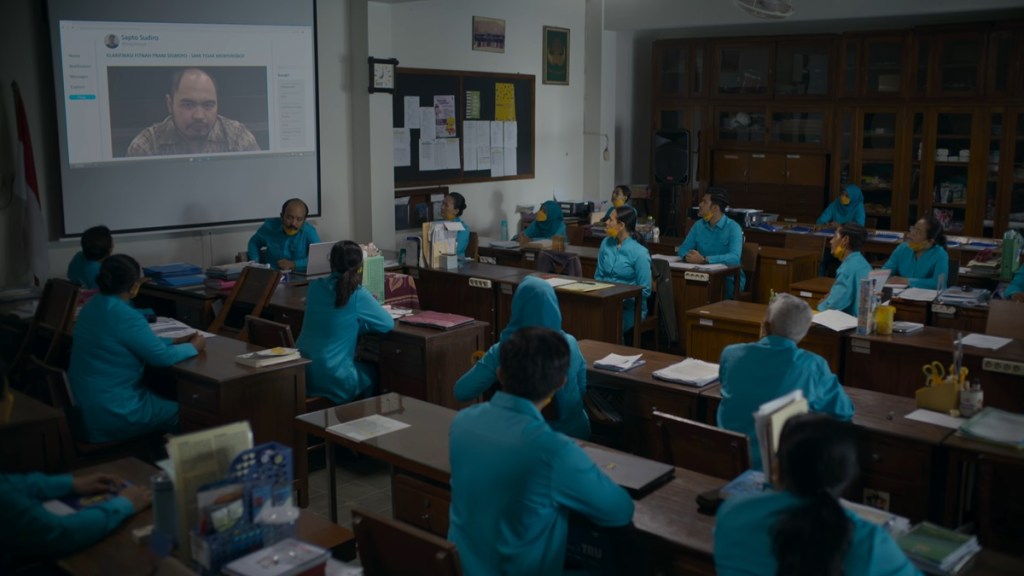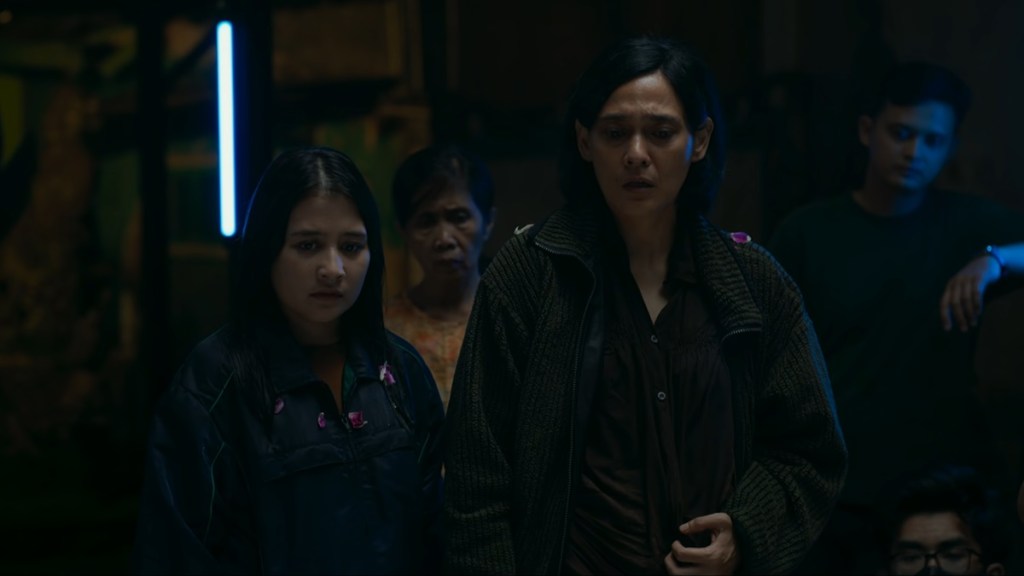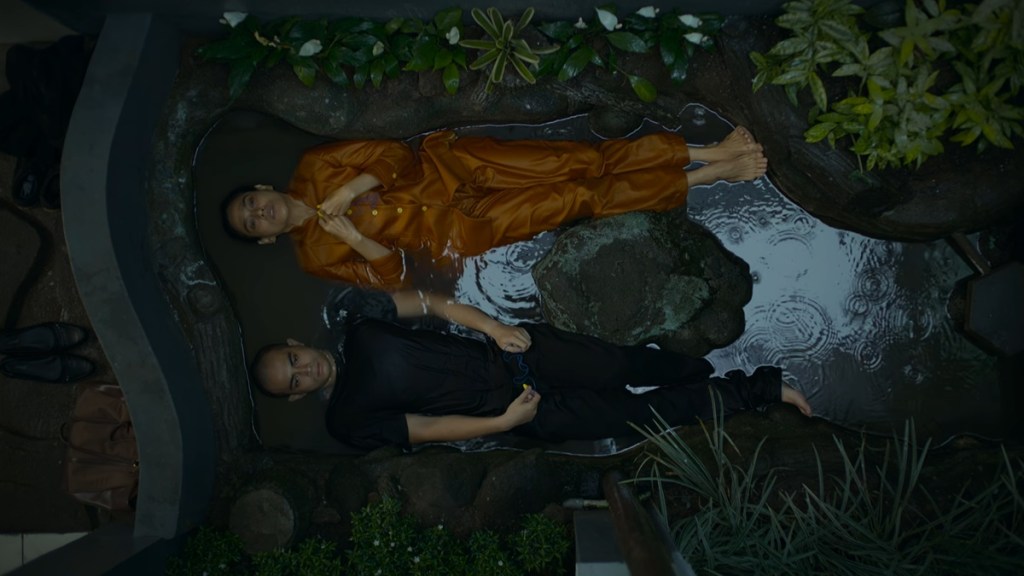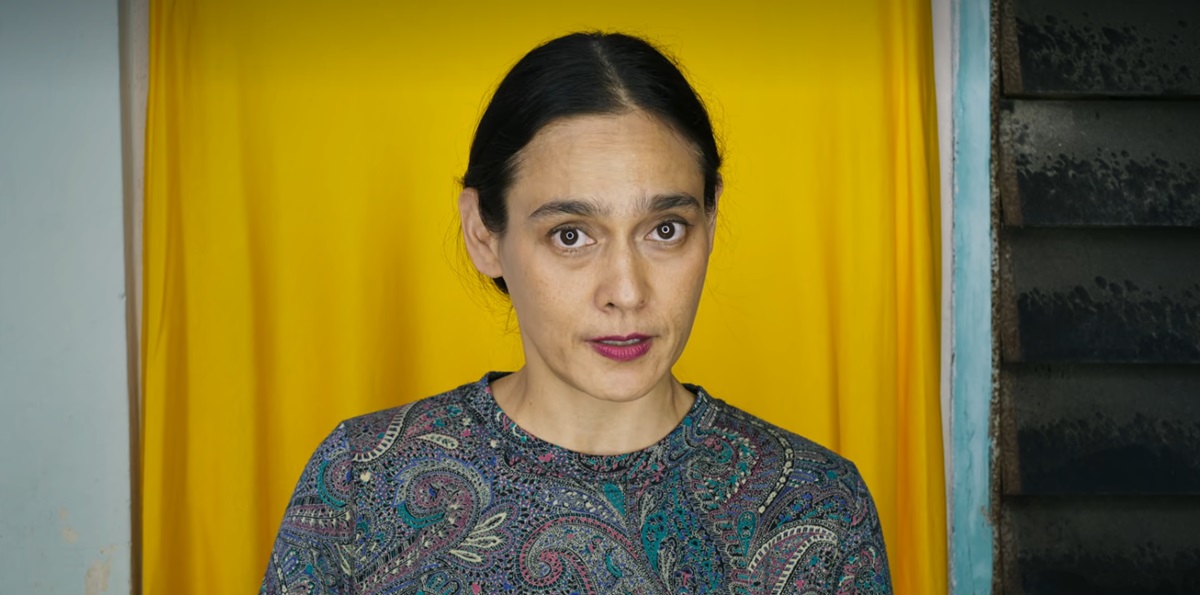Netflix’s ‘Andragogy,’ AKA ‘Budi Pekerti,’ is an Indonesian movie that delves into the topic of cyberbullying. Directed by Wregas Bhanuteja, the film follows Prani, a guidance counselor whose life turns upside down when a video of her scolding a line-cutter goes viral on the internet. From her family to her colleagues, everyone has their own opinion on what should be done to combat the situation. However, as the problem grows, Prani is also forced to wonder about her past and ponder whether her actions may have truly impacted someone in a negative manner.
With crucial messages that are relevant to the contemporary world, the film has quickly gained appreciation from viewers and critics. After all, the realistic depictions of how the world of the internet can impact day-to-day life have come to resonate with many. A movie with such elements has certainly made many feel like it may be connected to real-world events.
Andragogy Aims to Highlight Real World Issues
While ‘Andragogy’ is not a retelling of a single real-world incident, it does take inspiration from many similar stories that have happened till now. Wregas Bhanuteja, who serves as both the director and writer of the movie, explained that he had been researching for his second movie after ‘Photocopier.’ When he came across various cases of cyberbullying, especially videos of parents where they were being criticized for their actions, Bhanuteja became inspired to share the real-world impact of it all.

In particular, Bhanuteja wanted to showcase how people dealing with insults on the internet might suffer in the real world. Apart from the mental stress that such a situation can often cause, the film also delves into how cyberbullying also affects those close to the victim. The story also sheds light on the impact that such cases can have on one’s professional life. More than that, the viewers are also forced to think that context often matters and that people have much more going on than just a few seconds of their lives that became viral on the internet.
True to being a reflection of the real world, no character in the movie seems to be completely morally correct. Everyone has their own shade of grey to battle with, but the idea that someone’s one moment of lapse in judgment can totally upturn their whole life is a crucial issue highlighted by the movie. For the most part, Prani seems like a person who should be much respected, which only makes her situation more tragic to the viewers.

However, Bhanuteja’s idea behind the story is exactly what the viewers feel while following Prani. It is easy to believe the worst of someone when all that you might know is the negative portions of their life. While the world of the internet has made it easy to pass judgment on virtual strangers from across the world, the movie emphasizes how we often tend to forget that such a bombardment of negativity can impact a person’s real life.
Moreover, Netflix’s movie also delves into the tendency of the internet to dig up the past and the present to condemn someone’s future. Prani’s past actions come under much scrutiny, with experts on the internet sharing their opinions with much confidence despite not having the full context of the story. This is also highlighted in the struggle that Gora, a student of Prani, faces. He confesses to Prani that while he would love to help her out and clear the misunderstanding related to his past punishment, he cannot help but wonder if doing so might bring negative attention to him, with people wondering why he was going to therapy if he was not traumatized by one of Prani’s punishments.

The situation between Gora and Prani is a crucial portrayal of how the internet is often relentless in its pursuit of information. Oftentimes, such information can lead to an invasion of privacy that few are willing to subject themselves to and yet become a victim of. In a bittersweet way, as life almost always is, the situation brings up the question of who should become the next victim. Prani, whose life has been turned upside down, or Gora, who until then had not earned the internet’s ire but does have his own struggles?
As such, it becomes obvious that while ‘Andragogy’ may not be an adaptation of a single incident of cyberbullying, it does take inspiration from the real world. Bhanuteja’s decision to combine various impacts of cyberbullying in one continuous tale allows a realistic portrayal of the phenomenon that has become so common. However, he is also able to successfully highlight that while the internet might be a tool that has made bullying so easy, it still doesn’t change the fact that, in the end, it is not something exclusive to the virtual world and has always existed in various forms.
Read More: Cyberbully (2011): Is the Movie Based on an Actual High School Student?


You must be logged in to post a comment.